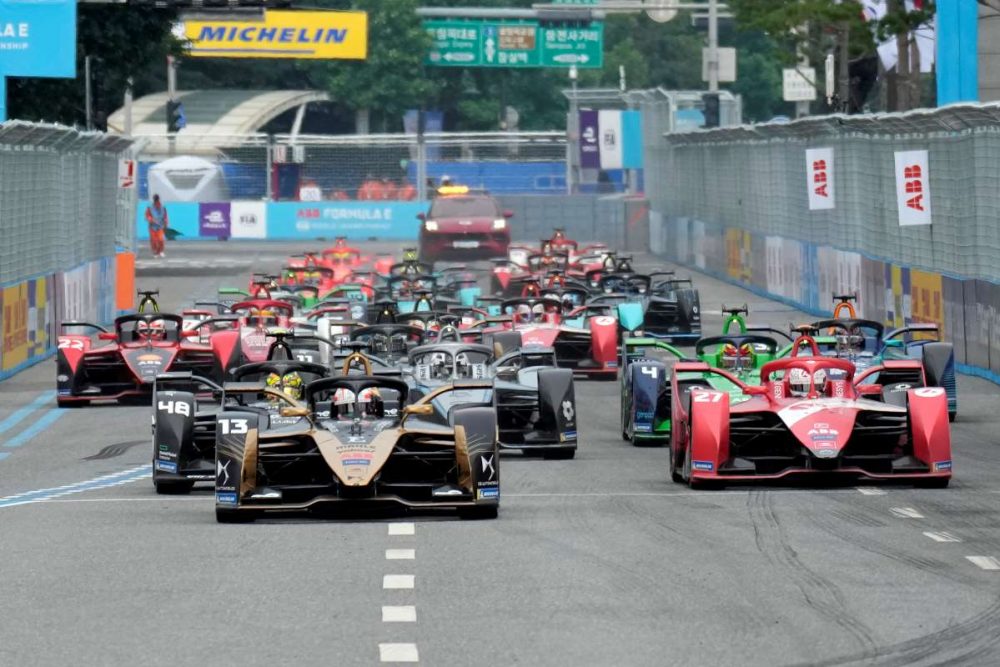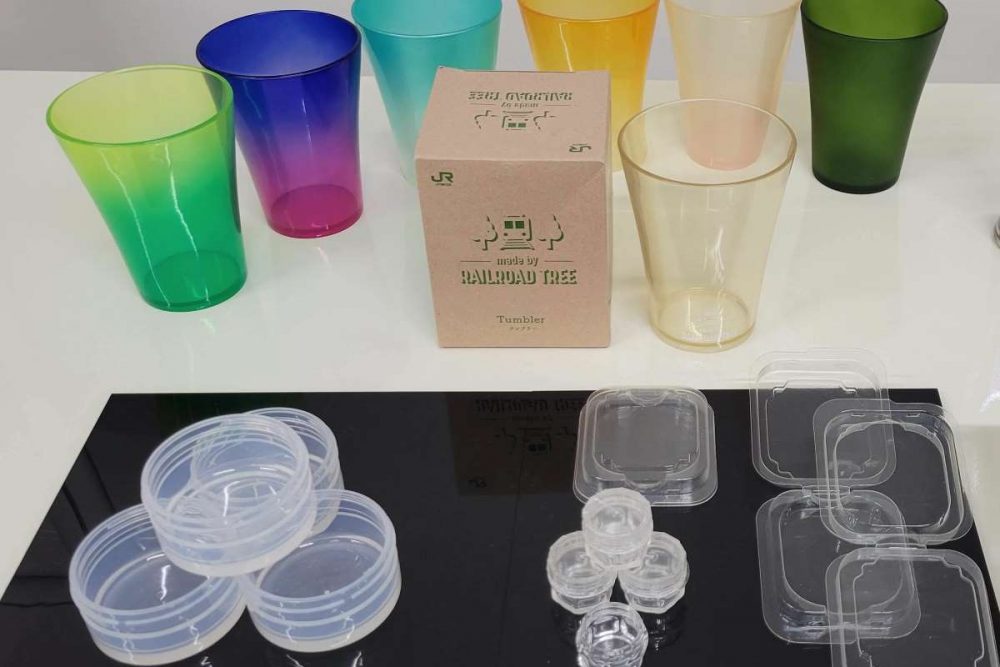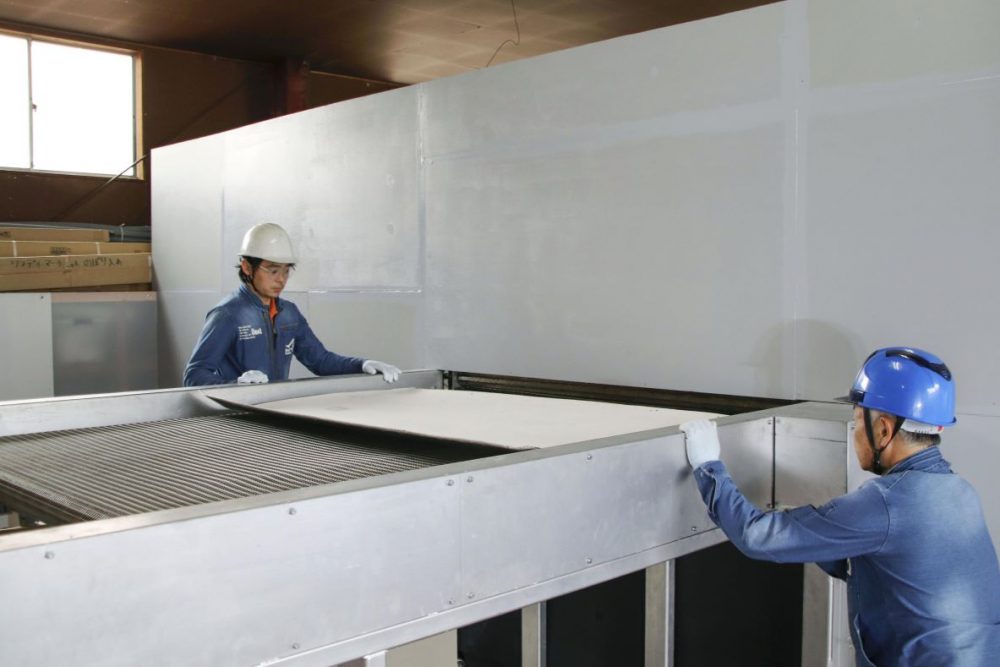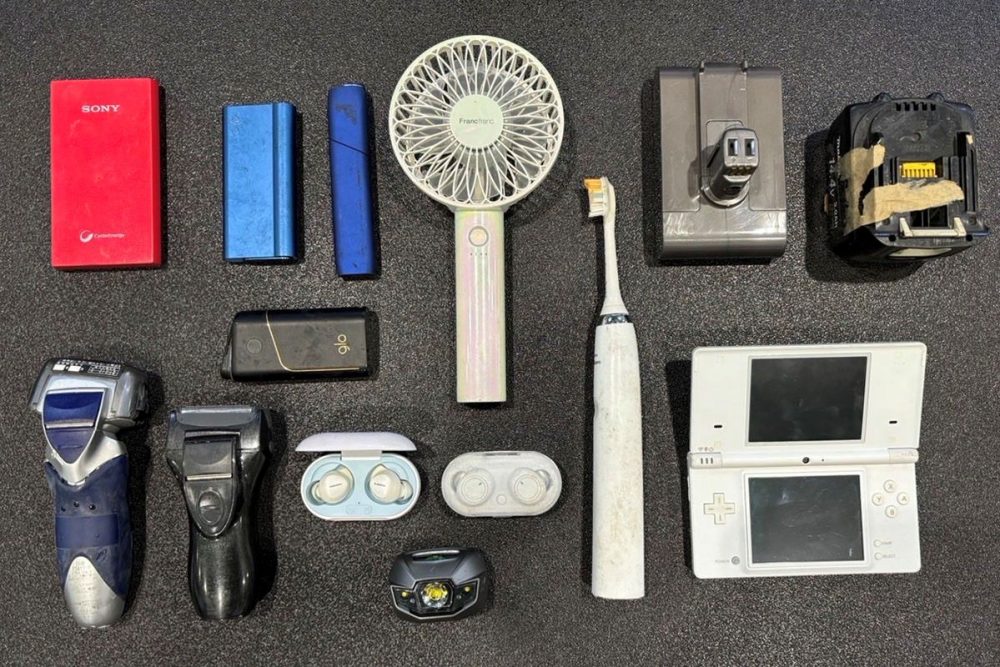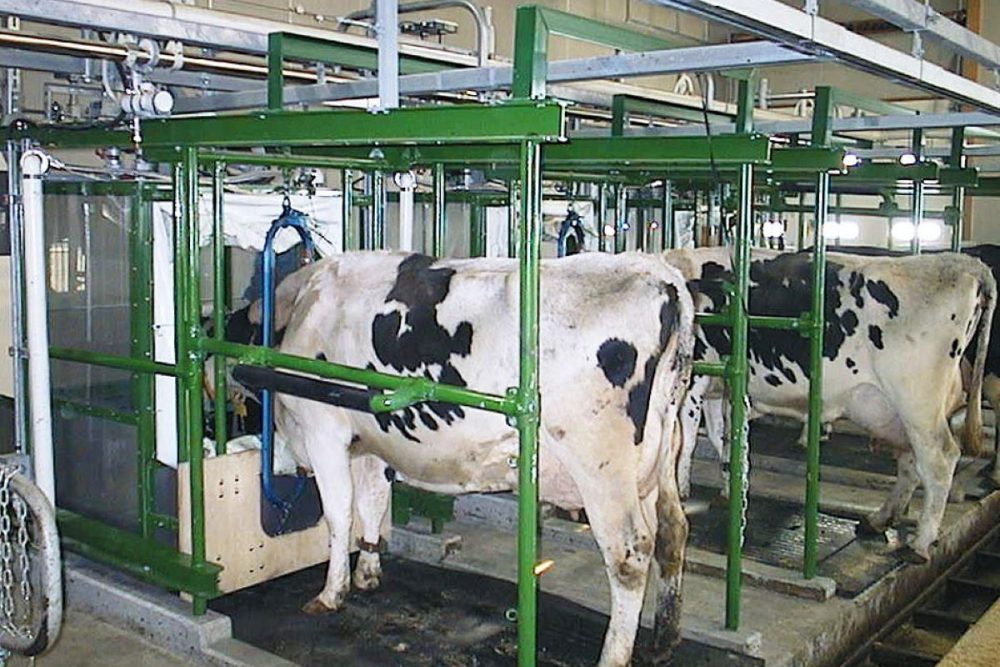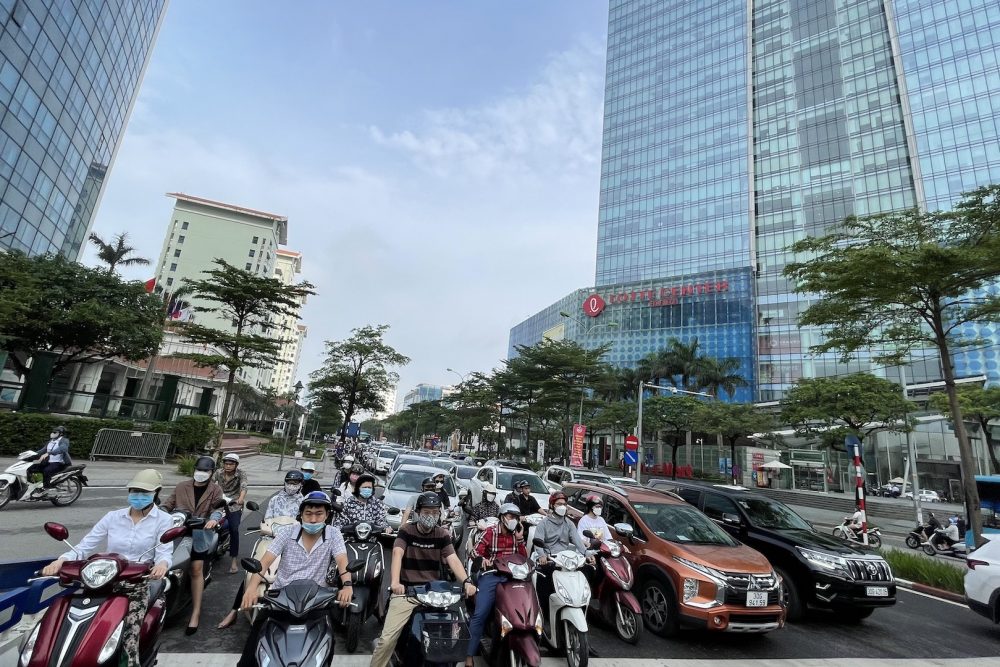Mass Production of Bio-Jet Fuel in Japan: Embracing the Challenge
Sanyu Plant Service is working to be the first in Japan to mass-produce bio-jet fuel, answering the aviation industry's need for sustainable fuel alternatives.

このページを 日本語 で読む
In business for 75 years, Sanyu Plant Service (Sagamihara City, Kanagawa Prefecture) has established a reputation for handling difficult industrial waste and operates based on its policy to "protect the environment and resources." Not only does the company upcycle coffee grinds as feed for dairy cows, it is also working to produce bio-jet fuel. Japan 2 Earth and JAPAN Forward contributing writer Mika Sugiura interviewed President and CEO Kazufumi Komatsu about projects aimed at leading the company into the future.
To combat global warming, the International Civil Aviation Organization (ICAO) has set a target of zero increase in greenhouse gas emissions in the international aviation sector after 2021. When targets become mandatory in 2027, the introduction of bio-jet fuel will be a must.
Last of two parts. Excerpts follow.
Sustainable, Next-Gen Bio-Jet Fuel
You were selected for a NEDO (New Energy and Industrial Technology Development Organization) funded project to develop bio-jet fuel technology. What is the status of the research and development?
Since 2015, we have been working to develop the technology with the support of NEDO. We aim to produce second-generation (non-food biomass) bioethanol that can be made into jet fuel.
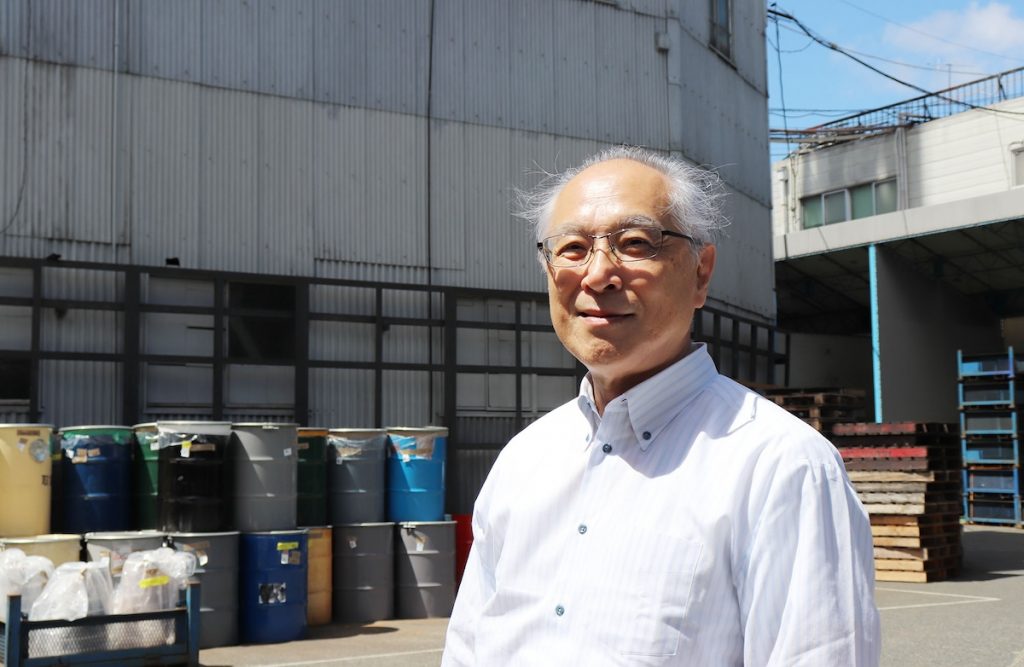
Although bio-jet fuel production is not very efficient cost-wise, if something is not done, Japan will end up having to buy bio-jet fuel from overseas at crazy high prices. To prevent this from happening, in 2025, we will start operating a production plant in Ehime Prefecture that will use recycled paper from paper manufacturers as raw material. We will thus become the first in Japan to mass-produce bio-jet fuel domestically.
Sharing Common Problems
Your company, well known for its technological capabilities, hires both college and graduate school graduates. As part of the waste industry, do you face any problems like labor shortages?
When I joined the company in 1978, my father entrusted me with hiring employees. I began hiring college graduates, which was still a rarity in this industry. Also, I required salespeople to wear suits instead of the boots and work clothes that had been the norm up to that point.
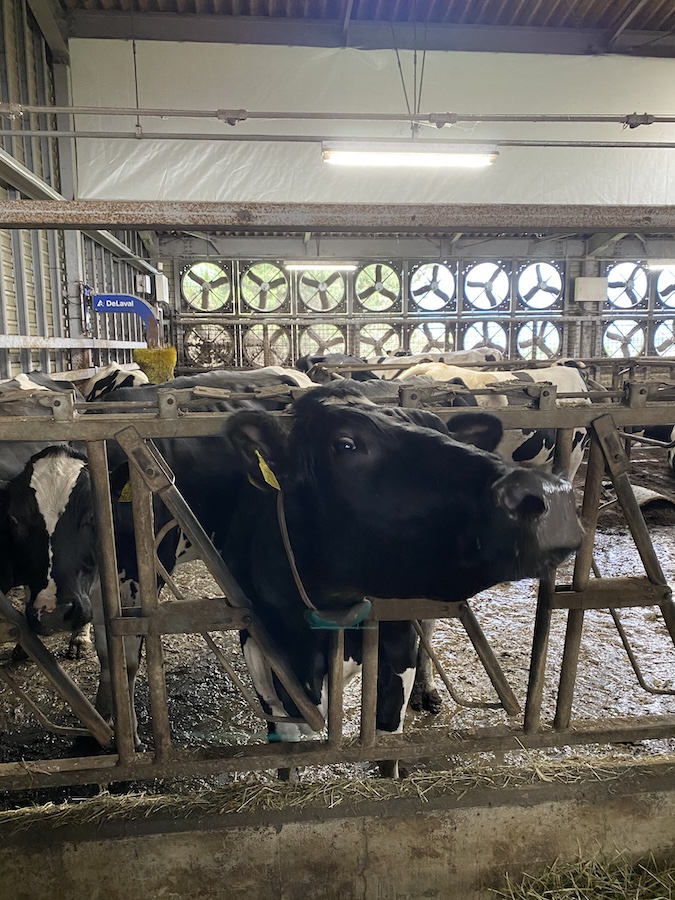
Every year, we are fortunate to have about 100 people apply for the 14-15 openings. How many companies in this industry can hire new college graduates? Before hiring, we show them our plants and take them on sales calls. Our plants operate 24 hours a day, 3 shifts, and the physical work can be very exhausting. We make sure they accept this before we take things any further. If they are unwilling, we don't hire them. For this reason, we have a low turnover rate. Many find the job rewarding. Industrial waste is a problem all companies face and our employees find a lot to talk about wherever they go.
I heard that you did not initially intend to take over the company.
When I was in high school, I wanted to be an architect and spent all my time drawing. After I got accepted to college, my father bought me a car. Then he started calling me to come pick him up when he was running late. The company was growing, and I was helping out part-time. Somehow I ended up having to take over the family business. My father was always one or two steps ahead of me. In managing the company now, I always think about what my father would have done. My father was a man who came up with new ideas even in difficult times. Even now, I have not reached his level.
Returning Glass to Nature
In August 2023, the Japan Sea Regional Cooperation Council for Marine Resources Utilization (JCM) was launched to protect the sea and contribute to local communities. Sanyu Plant Service is participating as a technical cooperation partner. Tell me about your role.
JCM is an association promoting regional revitalization through fisheries and the protection of the local marine environment. It takes into account changes in the marine environment, such as marine resource sustainability and offshore wind power generation. Other than us, domestic material manufacturers and domestic solar panel manufacturers are also participating in the technical cooperation.
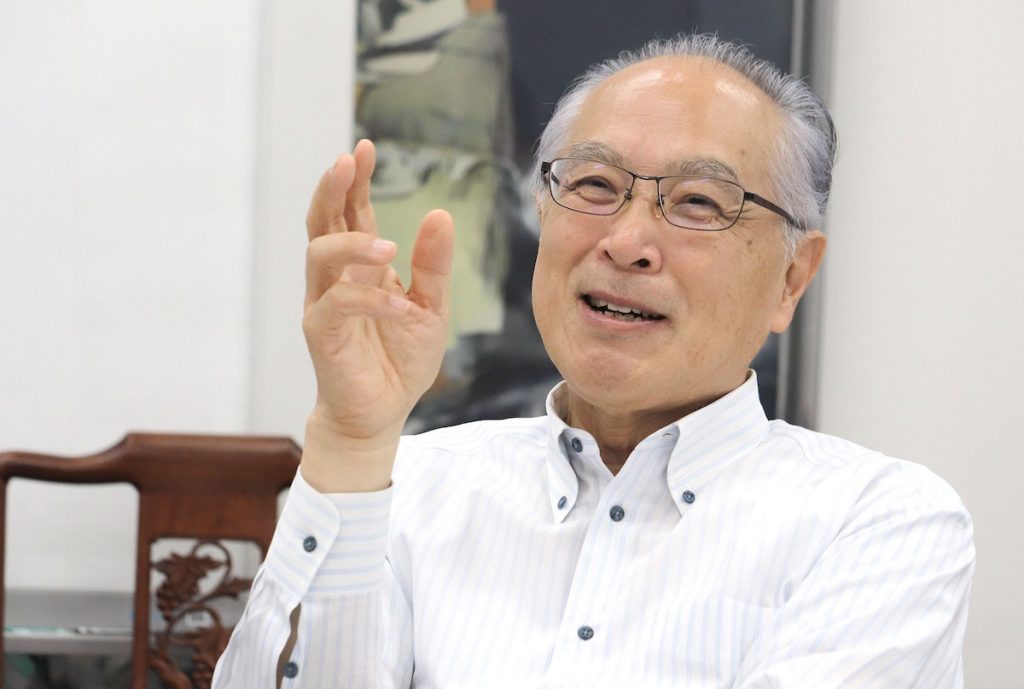
It is difficult to make glass products from glass products because glass does not do well with impurities. That's why we make it into artificial sand and return it to beaches. There are various recycling methods, and this could be called "back to nature" recycling. Beach erosion is a common problem, not only in Japan but for all island nations. We are contributing to this issue through this type of recycling. I believe this work can serve as a model for other countries. We intend to continue to protect the environment and resources by making full use of our network and technologies throughout the country, using waste as a starting point.
Kazufumi Komatsu was born in Atami City, Shizuoka Prefecture in 1953. After graduating from Musashi Institute of Technology's Faculty of Engineering, Komatsu worked for Kansai Paint Co., Ltd., until he joined Sanyu Plant Service in March 1978. He became a director in 1980, Executive Vice President in 1986, and assumed his current position as President and CEO in June 1992.
Read Part 1 of the interview here.
(Sanyu Plant Service is a Logo Partner of Japan 2 Earth.)
このページを 日本語 で読む






